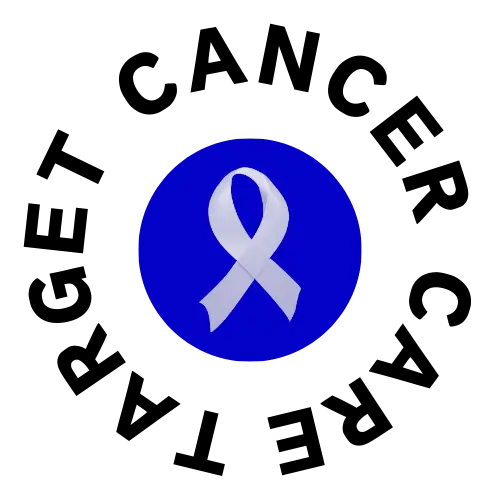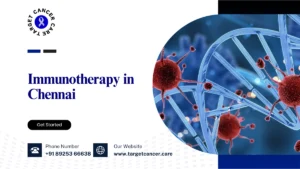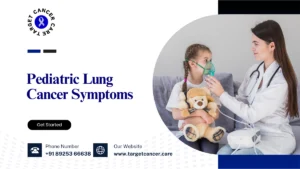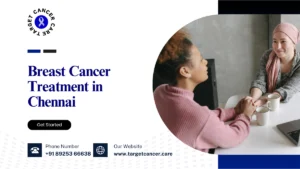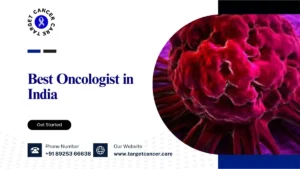Chemotherapy is an essential treatment for various types of cancers. However, the financial aspect can often be overwhelming for many patients. One of the primary concerns for individuals undergoing chemotherapy is the Chemotherapy Cost in Chennai. While the cost varies depending on several factors, understanding these can help you plan your treatment better. In this blog, we will explore the average Chemotherapy Cost in Chennai and discuss the factors influencing the price.
We will also touch upon the different types of chemotherapy treatments, how they work, and tips to manage chemotherapy costs. With more awareness, patients can make informed decisions and manage their expenses more efficiently. So, let’s dive into everything you need to know about Chemotherapy Cost in Chennai.
What is Chemotherapy?
Chemotherapy is a cancer treatment method that uses potent medications to target and eliminate rapidly multiplying cancer cells throughout the body. Unlike surgical procedures that remove tumors physically or radiation therapy that targets specific areas, chemotherapy affects the entire body, making it useful for cancers that have spread or are likely to spread.
Chemotherapy can be used in various ways:
- Curative intent: In some cases, it can completely eliminate cancer.
- Control purpose: It can shrink tumors or slow their growth.
- Palliative care: For advanced cancer stages, it helps relieve symptoms and improve quality of life.
Chemotherapy drugs may be administered orally, intravenously (IV), through injections, or even applied topically depending on the cancer type. The treatment is typically provided in cycles to allow the body to recover between sessions.
There are different types of chemotherapy:
- Adjuvant chemotherapy is administered after surgical removal of a tumor to eliminate any remaining microscopic cancer cells and reduce the risk of recurrence.
- Neoadjuvant chemotherapy is given before surgery to shrink the tumor, making it easier to remove and increasing the chances of a successful operation.
- Combination chemotherapy uses two or more drugs with different mechanisms to enhance treatment effectiveness and reduce the likelihood of cancer resistance.
The choice of chemotherapy protocol depends on cancer type, stage, patient health status, and how aggressively the cancer is behaving. While chemotherapy is highly effective for many types of cancer, it often comes with side effects such as fatigue, hair loss, nausea, lowered immunity, and more—these are managed through supportive care during the course of treatment.
Chemotherapy Cost in Chennai
The chemotherapy cost in Chennai varies depending on multiple factors including the type of cancer, drug regimen, number of sessions required, and the hospital or oncology center chosen. On average, the chemotherapy treatment cost in Chennai can range from ₹10,000 to ₹1,50,000 per cycle, depending on the complexity and duration of the treatment plan.
Some cancers require weekly sessions, while others may follow a cycle of every two or three weeks. Additionally, the inclusion of targeted therapy and immunotherapy—often used alongside chemotherapy—can substantially raise the overall treatment cost due to the high price of specialized drugs and advanced care protocols.
Patients undergoing chemotherapy in Chennai are advised to consider not just the session charges but also pre-treatment evaluations, lab tests, hospital stay (if needed), and post-treatment care as part of the total expenditure.
Below is a Breakdown of the Typical Costs Table
| Component | Estimated Cost Range (INR) |
| Initial consultation and diagnosis | ₹1,000 – ₹5,000 |
| Basic chemotherapy per cycle | ₹10,000 – ₹50,000 |
| Advanced targeted therapy drugs | ₹50,000 – ₹1,50,000 |
| Hospital day care charges | ₹2,000 – ₹8,000 |
| Lab tests and imaging | ₹3,000 – ₹15,000 |
| PICC line/port insertion (if needed) | ₹15,000 – ₹30,000 |
| Anti-nausea & supportive meds | ₹2,000 – ₹10,000 per cycle |
| Post-cycle monitoring | ₹1,000 – ₹3,000 per visit |
- The cost of chemotherapy in Chennai can be substantially higher at private super-specialty hospitals compared to government hospitals or NGO-run facilities.
- Health insurance may cover partial or full treatment cost, especially when the hospital is part of an approved network.
- Some hospitals offer chemotherapy packages that include diagnostics, oncologist charges, drugs, and nursing care.

Why is Chemotherapy Applied for Cancer Patients?
Chemotherapy plays a crucial role in managing cancer and is often tailored to the unique needs of each patient. It is chosen based on the cancer’s type, stage, location, and the patient’s overall health. The use of chemotherapy in Chennai hospitals is guided by evidence-based protocols to ensure the best possible outcomes.
Purposes of Chemotherapy in Cancer Treatment:
- Destroying cancer cells throughout the body: Unlike localized treatments such as surgery or radiation, chemotherapy works systemically. It travels through the bloodstream to target cancer cells that may have spread to distant organs.
- Preventing cancer recurrence: In many cases, even after successful surgery, there may be microscopic cancer cells left behind. Chemotherapy helps in destroying these hidden cells, reducing the chance of recurrence.
- Shrinking tumors before surgery: Known as neoadjuvant chemotherapy, this approach is used to reduce the size of tumors, making them operable or easier to remove surgically.
- Relieving cancer symptoms: In advanced stages, chemotherapy is used to shrink tumors that cause pain or pressure, improving the patient’s comfort and extending life expectancy.
- Enhancing survival rates: In certain aggressive cancers like lymphoma or leukemia, chemotherapy is often the primary treatment modality and significantly increases survival rates.
Patients receiving chemotherapy treatment in Chennai undergo thorough diagnostic evaluations before starting the regimen. This ensures that the approach chosen will be most effective for their individual case.
Factors Affecting Chemotherapy Cost in Chennai
The chemotherapy cost in Chennai is influenced by several critical variables. Each patient’s case is unique, and these factors can significantly alter the total expenditure.
Key Factors Influencing Chemotherapy Expenses:
- Type and Stage of Cancer: Advanced-stage cancers often require more aggressive and prolonged treatment. Certain cancers, like breast or colon cancer, might be treated with standard drugs, whereas others, like leukemia or pancreatic cancer, may need costly targeted therapies.
- Choice of Drugs Used: Chemotherapy regimens can include generic drugs or advanced medications like immunotherapy and monoclonal antibodies. The latter can raise the chemotherapy treatment cost in Chennai substantially.
- Number of Chemotherapy Cycles Required: Some cancers respond to 4–6 cycles, while others might need 8 or more. Each cycle includes drug costs, supportive care, and monitoring charges, cumulatively affecting the final bill.
- Hospital Infrastructure and Facilities: The cost of chemotherapy in Chennai differs across institutions. Premium hospitals with advanced oncology departments, private rooms, and integrated diagnostic labs may charge more compared to mid-tier centers or government hospitals.
- Doctor’s Expertise and Consultation Charges: Experienced oncologists with a multidisciplinary team might have higher consultation and procedural fees, contributing to the overall chemotherapy treatment cost in Chennai.
- Supportive Medications and Complication Management: Patients often need medications for side-effect control—antiemetics, growth factors, antibiotics, or blood transfusions—which add to the bill, especially in case of hospitalization due to complications.
- Diagnostic and Monitoring Tests: Frequent blood tests, imaging (CT, PET scans), and organ function assessments are mandatory throughout the treatment process, adding to the chemotherapy cost in Chennai.
Understanding these cost factors helps patients make informed decisions about their care and consider insurance or financial support options when planning for chemotherapy in Chennai.
Why Choose Ours for Chemotherapy in Chennai?
Choosing the right oncology center is critical for effective and compassionate cancer care. Our facility stands out for its clinical excellence, personalized approach, and cost transparency. We aim to deliver world-class chemotherapy treatment in Chennai with a strong focus on patient safety, comfort, and outcomes.
What Makes Our Chemotherapy Care Unique:
- Expert Oncology Team: Our board-certified medical oncologists, oncology nurses, and support staff are experienced in handling complex cancer cases. We follow evidence-based international protocols and customize treatment plans for each patient.
- Advanced Drug Therapies: We offer both standard and advanced chemotherapy regimens, including targeted therapy and immunotherapy. These options improve effectiveness and reduce side effects, all while optimizing the chemotherapy treatment cost in Chennai.
- Modern Day-Care Chemotherapy Suites: Chemotherapy is administered in well-equipped, sanitized, and patient-friendly day-care units. This minimizes hospital stays and lowers the overall cost of chemotherapy in Chennai without compromising quality.
- Integrated Support Services: From nutritional guidance to psychological counseling and pain management, our holistic approach supports physical and emotional healing throughout the treatment process.
- Transparent Pricing and Financial Support: Our pricing model for chemotherapy cost in Chennai is transparent with no hidden charges. We assist with insurance approvals, EMI options, and government health schemes to ease financial burdens.
- High Safety Standards: Drug preparation is done in sterile environments with rigorous safety checks. Our protocols ensure minimal infection risk and maximum drug efficacy during chemotherapy in Chennai.
- Continuum of Care: Post-chemotherapy follow-up, side-effect management, and rehabilitation services ensure that patients receive ongoing care and are not left to manage recovery on their own.
Our commitment is to provide safe, effective, and affordable chemotherapy treatment in Chennai with compassion at every step.
Conclusion
Understanding the Chemotherapy Cost in Chennai is essential for planning your cancer treatment. While chemotherapy can be expensive, there are various ways to manage the costs, such as insurance, government programs, and financial assistance from hospitals. By understanding the types of chemotherapy, the treatment process, and how costs accumulate, patients can make informed decisions. Always discuss with your healthcare provider to get an estimate of the Chemotherapy treatment in chennai costs and explore cost-saving options. With the right planning and support, you can manage the financial aspects of chemotherapy and focus on your recovery.
